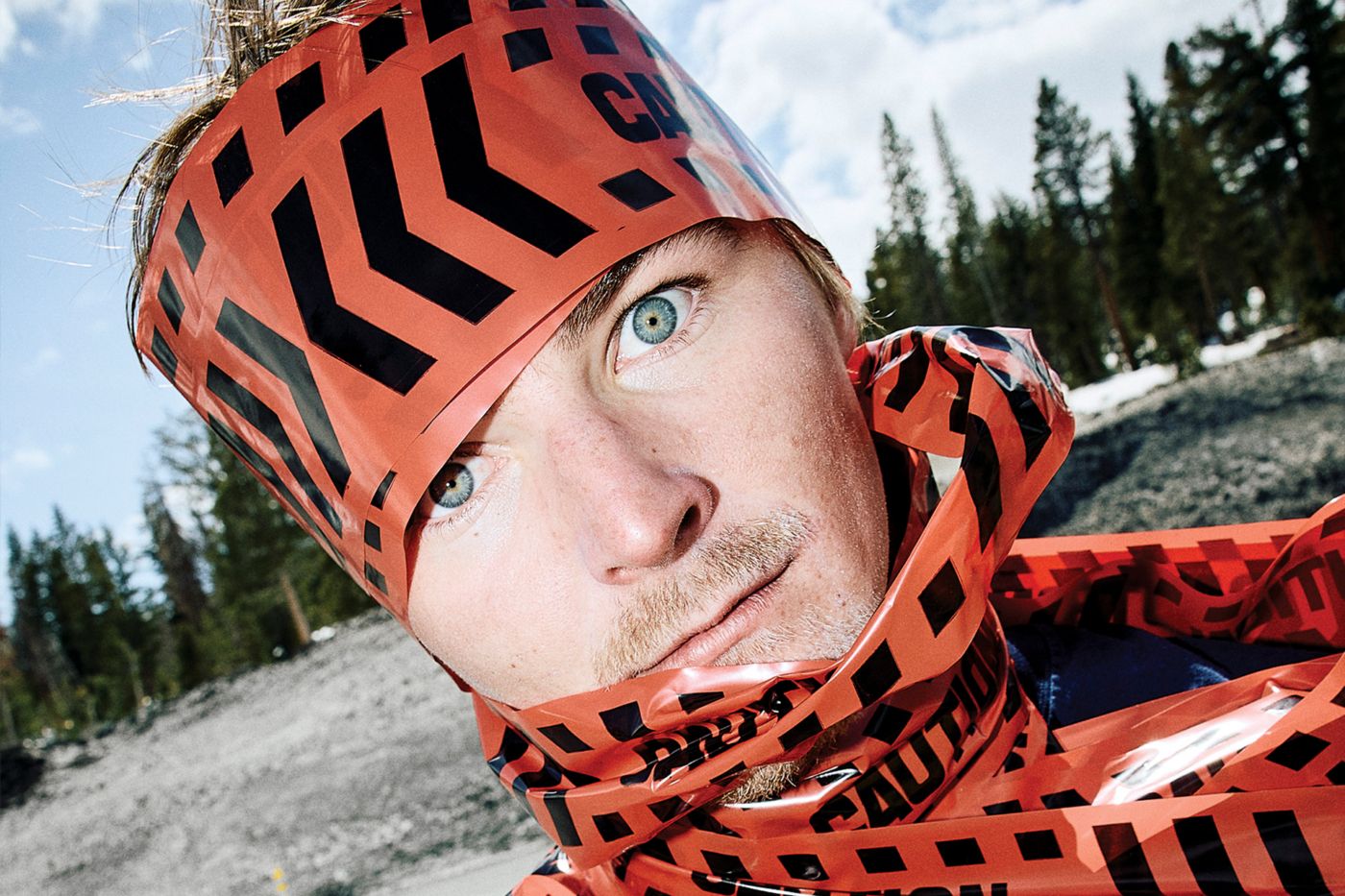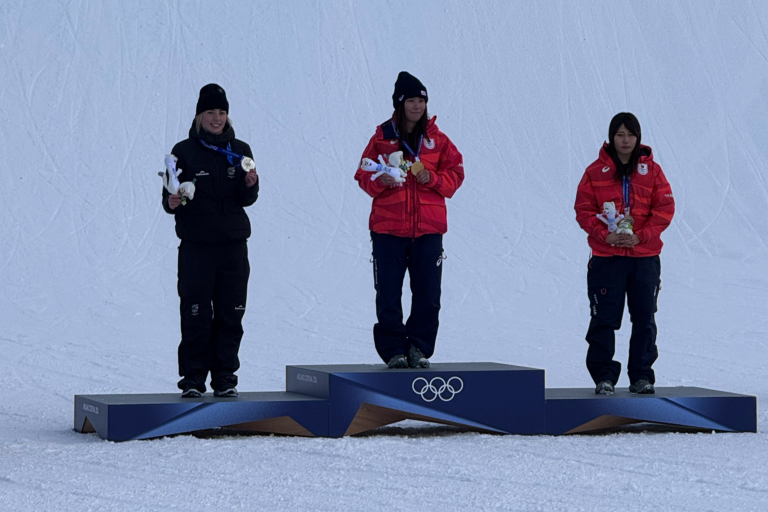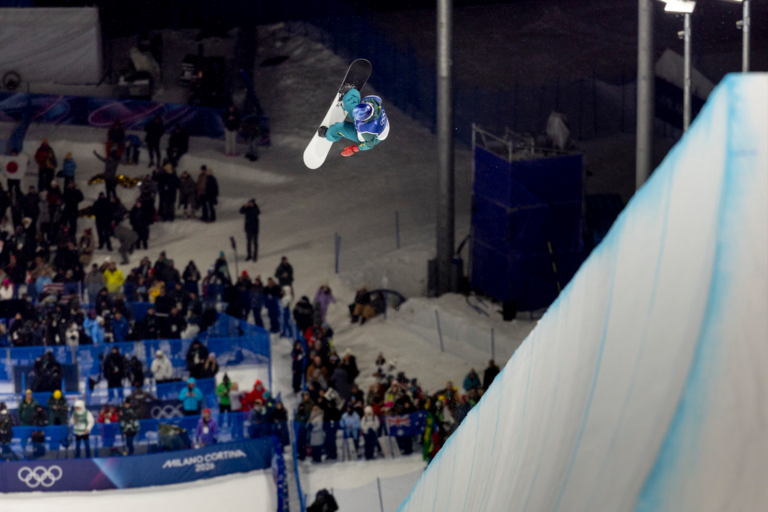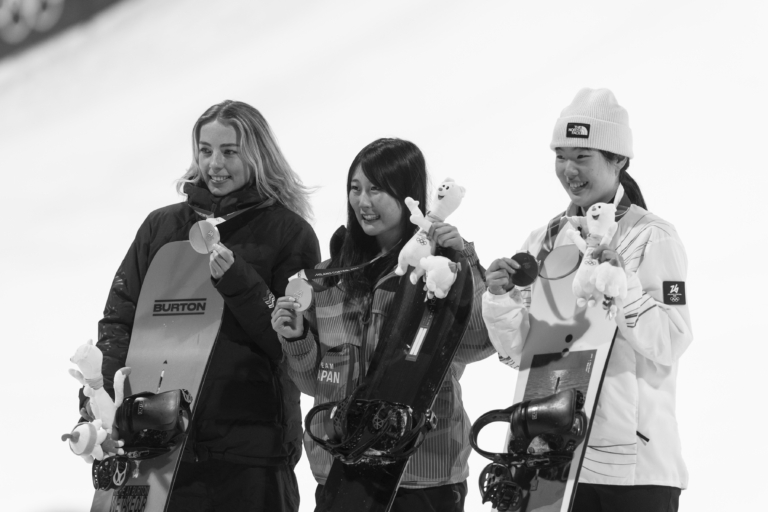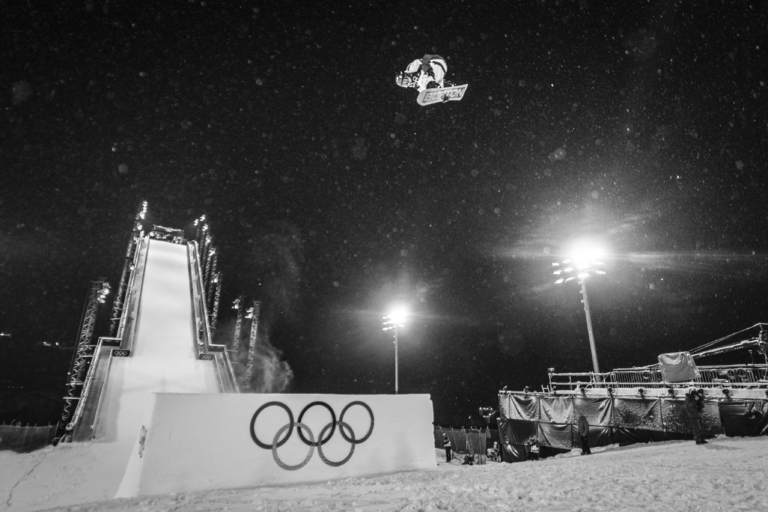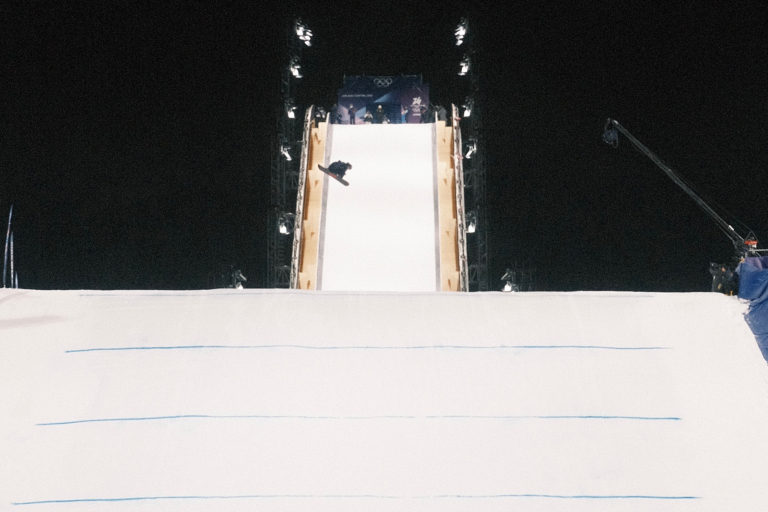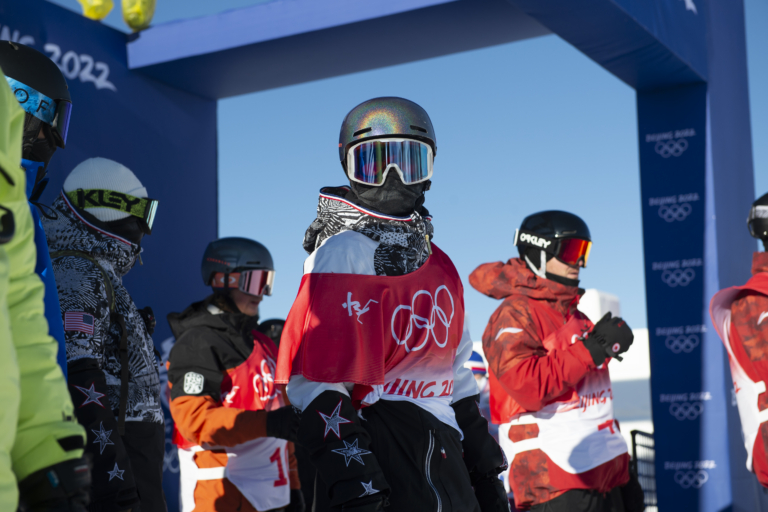Dusty Henricksen is about to have a big winter. Will he tell us the secret to his success? We didn’t ask him that question, but we did ask where he gets his signature style from. We caught up with the Southern California slopestyle prodigy, currently on the hunt for a spot on the 2026 Olympic team, to see how he will balance the pressure and continue to enjoy filming with his brother and friends in their must-watch Buster series. Oh, and he just dropped his first pro-model board with Salomon. Go check it out. – Clavin

Mark Clavin: Where are you at right now?
Dusty Henricksen: At my house in Oceanside, California.
How’s it feel to be a homeowner?
Pretty fancy stuff.
Did you buy that house with your contest winnings?
I did. Had some help from my family, but yeah, good amount of contest winnings.
That’s pretty impressive.
Tripping, man. I’ve got a pool table getting delivered in, like, an hour.
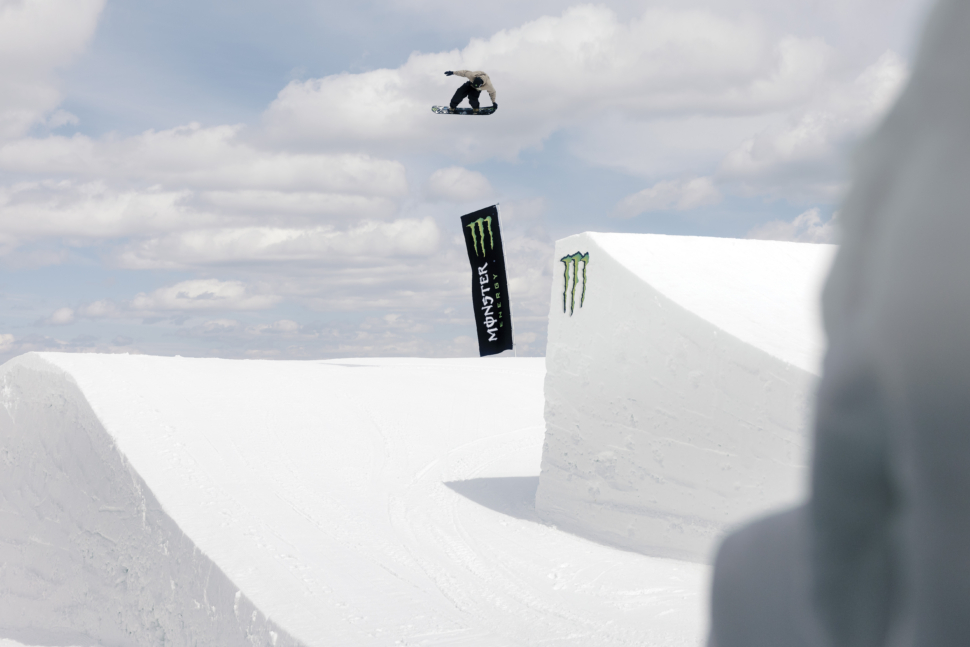
Perfect. We’ll get it done before the pool table gets there. What’s the largest payout for a win?
They’ve all been pretty similar payouts. X Games is, like, 11K, and all the World Cup stuff’s, like, 10 to 11.
Didn’t it used to be more back in the day?
Oh, yeah—it used to be, like, 75K, and you [could] get a Jeep on top for a double wildcat and a back five.
Do you think you were born too late?
I’m not saying I was born too late, but it would have been nice.
How many Jeeps would you have by now?
A couple.
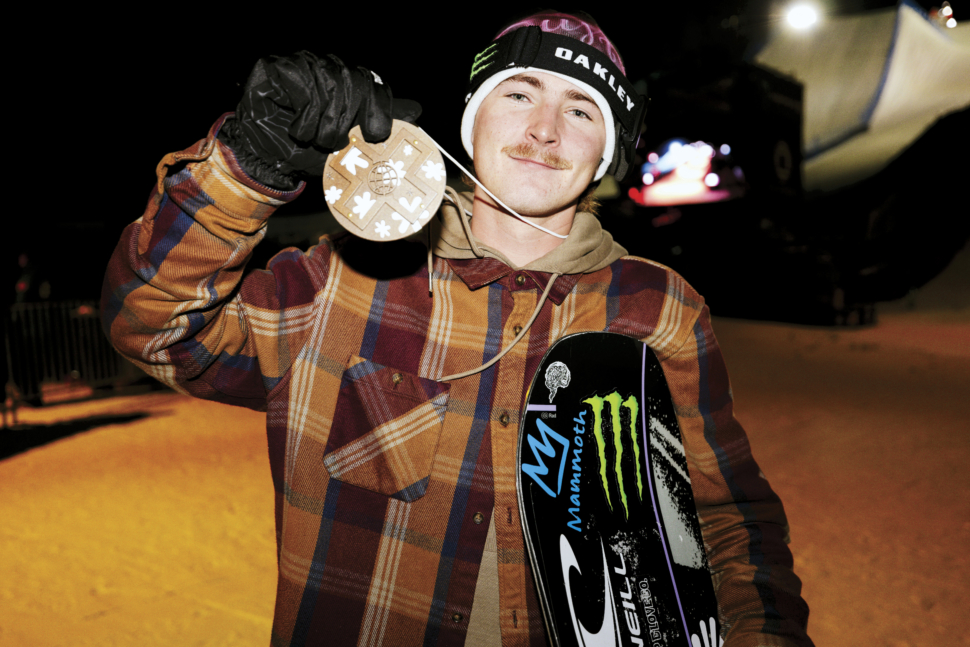
A few FIS finishes, some X Games and Laax podiums—didn’t you win the U.S. Open, too?
I got second at the [2020] U.S. Open, but I did do the first quad cork in slopestyle history.
How does it feel to be the first person to land a quad cork in a slope run and ruin competitive snowboarding by making everyone else do them now?
Yeah, it feels pretty lame. I was, like, backed into a corner, too, when I did the quad. I just didn’t want to land backwards and do a 16. So I was like, “Fuck it, I can do one more.” Felt easier to me at the time, but now, yeah, every contest doing quads sucks.
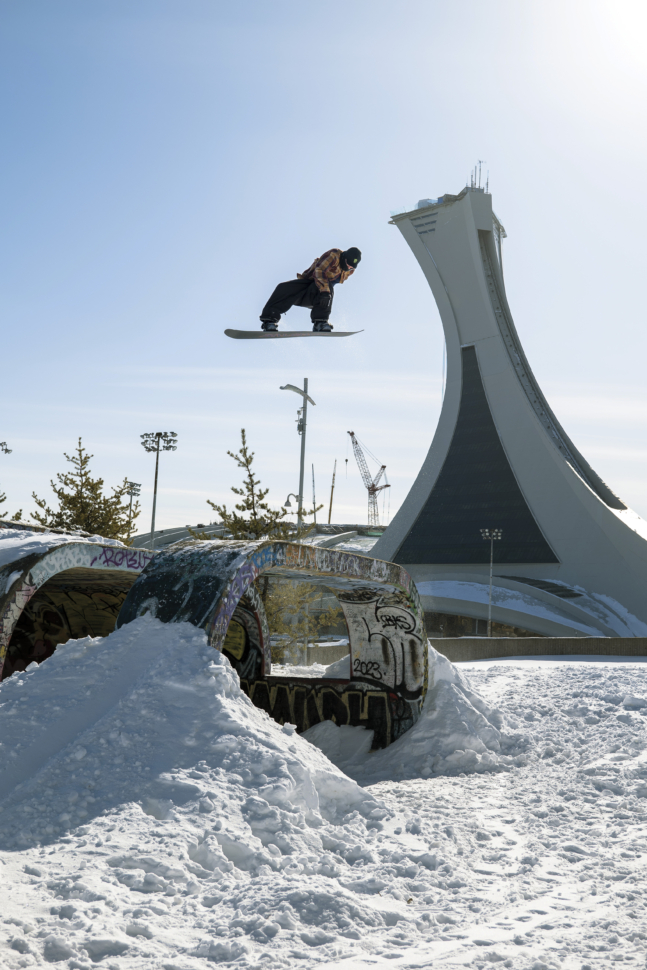
And that only got you second place.
Yeah. Which was sick, honestly. I respected it, the way they did it. Yuki [Kadono] had a doper run.
That was your breakout year wearing the white T-shirt, yeah?
Yep. But with more contracts, less T-shirts. Now I’m running flannels and outerwear, which is nice in the cold.
Big year coming up, with some pretty heavy competition between the U.S. team to qualify for the Olympics.
Trying my best, yes.
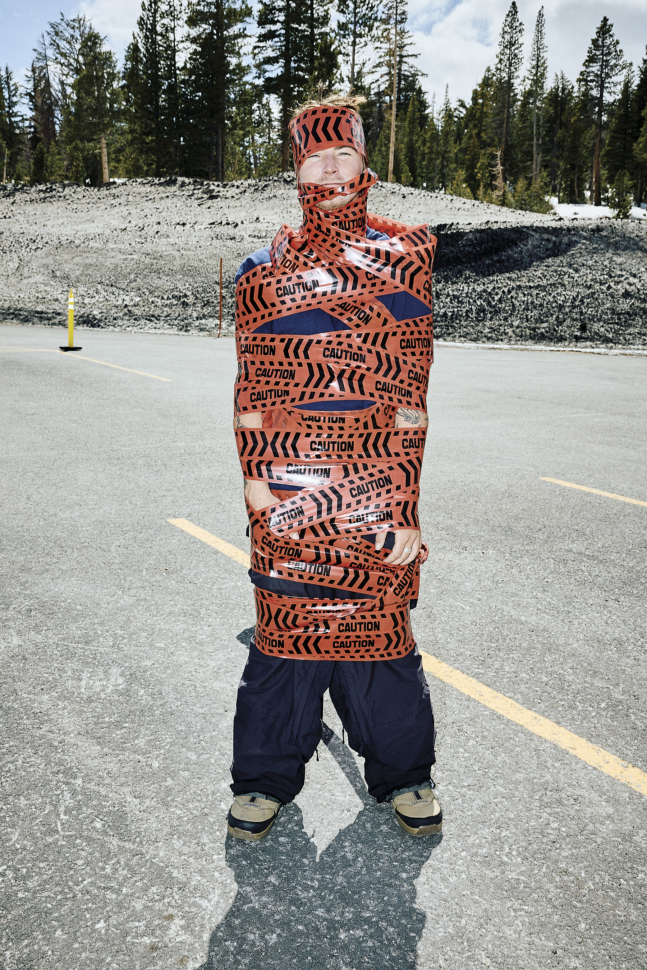
What’s it like working for four years and then only having a short window to show that skill off to the world?
It’s definitely pretty high pressure, but, I don’t know, having gone to the Olympics definitely helps kind of your perspective on it as a rider. Because as a rider, it’s not the best event, might not be the best course, and it is not the best riders. And with my one being during COVID, you didn’t have as good of food options. It felt like fake snow, and the judges gave it to the guy who grabs his knee. So, yeah, as an athlete, to put your four years in for the event and they give it to the guy that missed the grab—it’s definitely frustrating, but it is what it is. It is the only event that the majority of the public cares about, and there’s no reason for that. It’s definitely not, like, the make-or-break for us.
Hoping for a better result this go-around?
Most definitely. There’s definitely a lot of strategy to just qualify with there being so many good riders on the U.S. team. It’s a trip, but I think, like, 12 kids could do it. Besides Red [Gerard], who already qualified, it just kind of depends on how the early-season comps go. We’ve got Brock [Crouch], Judd [Henkes], Luke [Winkelmann], Sean [FitzSimons]—you know, we all have our own style, and then all the younger kids are kind of just, like, the robotic younger wave, but they’re killing it. And they will start to add in their style now that they have all the spins.
Who’s someone currently that you look to for style in the contest world?
Judd is a pretty gangster. I think Judd and I have a similar influence with loving Torstein [Horgmo]’s style from just all of his footage back in the day. And it kind of fits to, like, where we stand in snowboarding right now. You know, we love backcountry and street but also do contests.

Secret to your style?
Try your best to keep your hands below your waist. That’s what my dad told me—“As soon as your hands get above your waist, you’re blowing it”—since I was born. So that’s kind of one of the main things, I guess you could say—keep those hands down.
What is it like being a ranked rider in the FIS rankings?
Pretty funny. If you’re in the top 10, you’re being watched for a four-year cycle. FIS actually has your whereabouts at all times. For a snowboarder that’s traveling all the time, it’s a trip. Right now, at my house, they come at 6 or 7 a.m. for random drug tests. Even when you’re on trips, they could come find you. Like, if you go on a sled trip or something, you have to tell them where you are and check in. You get strikes for missing tests, and I think you get three.
Didn’t you test positive for COVID in China?
Yeah. It was from having COVID three months before. I had negative tests all over before I got out there, but their tests were just so touchy that I could not get negatives out there. After traveling across the world, I went straight to quarantine at four in the morning the first night we got there. And then they wouldn’t let me out until I got a few negative tests in a row, but they had to be 24 hours apart. So I get tested once a night, and it took me, like, eight days. The day before the qualifier practice, I got let out.
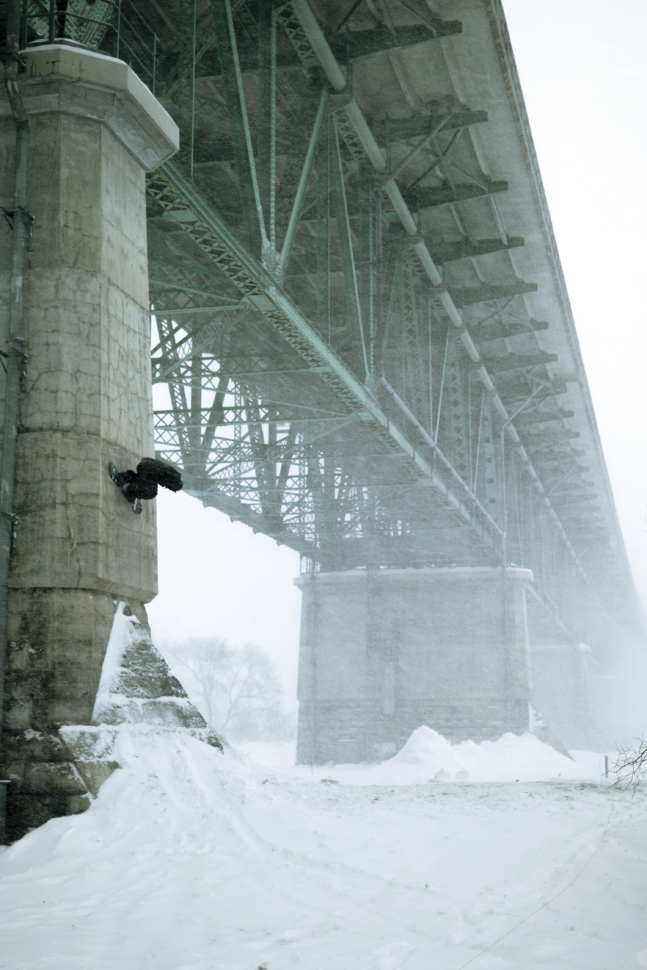
You were not allowed to leave your room until that moment?
Yeah. Just a little hotel room, and they would bring me food, but I couldn’t tell if it was meat or a carrot or what. So I just basically ate KFC chicken sandwiches from the moment I got there until practice. Definitely felt a little heavy. [Laughs.] And the shower had brown water running in it, so I didn’t really jump in that. I was not having a good time out there.
You do a strict diet and hit the gym now that you have to compete with super-athletes?
For sure. I wouldn’t say super strict. It’s more like a weight-management sort of deal. I can’t do the spins and shit if I’m feeling heavy. Like, if I’ve gained 20 pounds, it makes such a big difference on the slope course. You used to be able to chuck yourself, but now it’s like you have to be so focused and precise that yeah, you gotta stay healthy. I surf all day, every day, pretty much in the summer.
Yeah. So do you kinda keep the partying to a minimum when you’re actually in season?
I’d say it’s kind of the opposite I’ve been on. I’ve been on, like, an absolute blowout and then, yeah, my whole body and everything just is like, “You gotta stop, man.” You deal with a lot of stress and nerves while you’re actually riding, so you need something to take the edge off.
Do you think your Southern California kind of upbringing has affected your view of the world?
Definitely. I’m a sixth-generation Southern Californian; both my parents have such SoCal blood in them. You know, it’s just been jammed down my throat my whole life.
So you grew up riding in Big Bear?
Yeah. I was 2 years old. As soon as I could walk, my dad had me cruising around. My mom was born and raised in Big Bear, and my dad was just an avid board guy. He grew up down at the beach, surfing and polishing boats. His buddy and him were the first guys to manufacture some of the Sims boards back in the day because they knew how to work with some fiberglass. And then my dad went on to start snowboard-instructing programs and was one of the first instructors in Big Bear, Mammoth, Mountain High and all those.
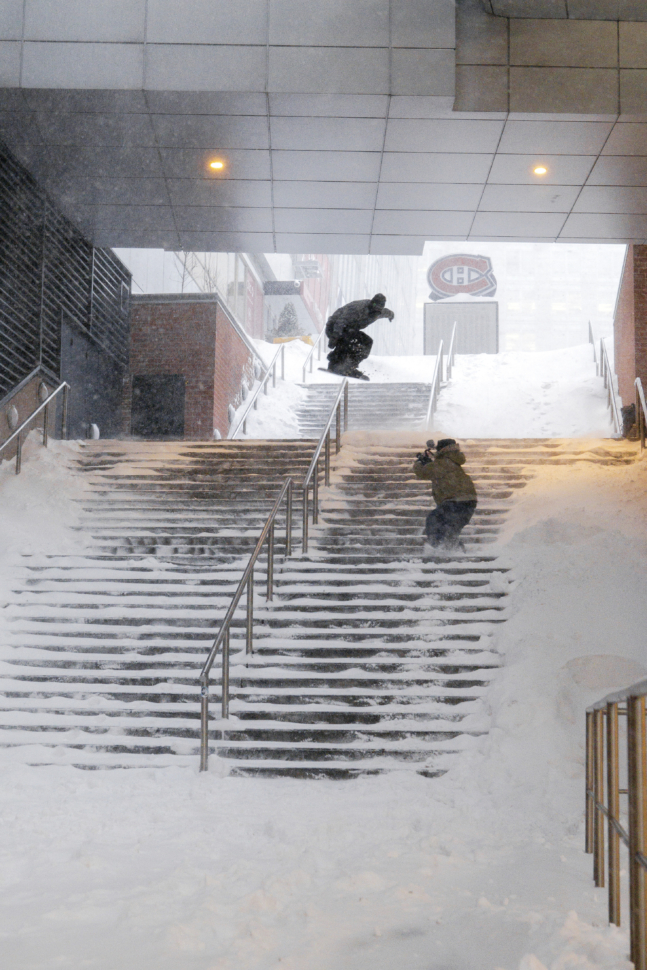
Your dad was the first snowboard instructor at those resorts?
Yeah, Mark Henricksen, or Marko. He went to the owners and said, “It’s time to teach these hooligans how to do it.”
So your dad’s responsible for a lot of snowboarders getting started in California?
Yeah. He was Billy and Jeff Anderson’s first team manager on Volcom, too. He took them in when they were groms.
You are kind of like boardsports royalty, huh?
I don’t know—I just got to ride a lot. I spent my first 13 years in Big Bear, then moved to Mammoth until 19, and then I got a place in Oceanside when I turned 20.
Oh, yeah—how was your Salomon shoot in Mammoth?
It went great. I got a new board coming out, so that’s what that was for. It’s, like, a Southern California tribute colorway of the Huck Knife Pro. A Big Bear on the bottom and the Minarets on the top. I was stoked to have some input, and that’s coming out this year. That’ll be coming out November 1.
Is that what you’ll be riding in contests?
This next year, yes.
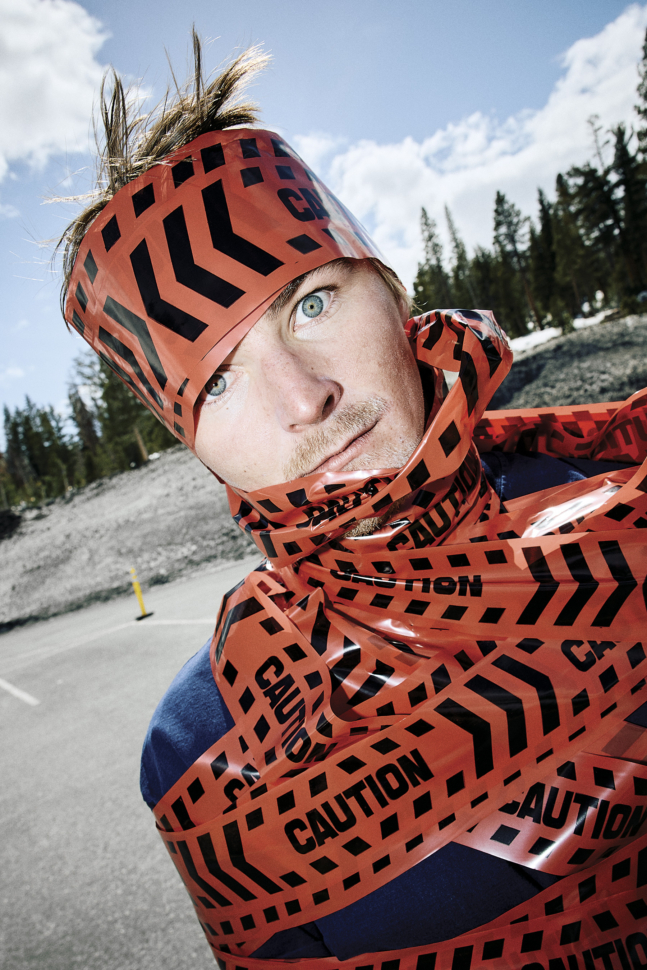
How’s it feel to have your name on a board after all these years?
Definitely a huge, huge bucket-list check.
Do you have any other hobbies outside of skating, snowboarding and surfing?
Yeah, for sure. I shape surfboards now. That’s pretty fun. I used to do a lot of just random crafts when I’d get home. Made wallets—I like to sew and just do anything I can, make a skate ramp or whatever.
So still around surfing and skating.
[Laughs.] Yeah, I guess. My dad has so many cool friends down here who are, like, pro shapers, and they give me the pro tips. So, it’s been nice for me because I don’t have to go through making super-shitty boards. I’m just, like, making decent boards that I like riding.
How’d you end up on Salomon?
I did a blind board test a few years ago, and I ended up liking theirs the most out of the boards.
Worst injury from riding in contests?
Torn discs in my back. I separated my pelvis when I was 13 on, like, a side-scorpion kind of fall, so my pelvis has been crooked for a long time. I was able to pop it out for a while—I thought that was a party trick. And then, when I was 18, my back just started hurting so bad. And now it’s been, like, four years of just blowing my back out every fall and getting all these injections so that I’m good for the season, but they wear off every fall. So then I’ll have, like, these blowouts, and it’s a horrible injury.
So what makes you keep coming back to snowboarding through all that chronic pain?
It’s all I got. I’m gonna go try the stem-cell injections out in Colombia. Sounds like that’s what Tony Hawk and Travis Pastrana do, and that’s the only reason they can walk or do anything is because of this technology. It’s the only thing that can heal these bulged and compressed discs. It’s pretty pricey, but I hopefully got this deal lined up so I can do podcasts and stuff, but it’s heavy. I’ve tried everything kind of at this point in America, and it’s just numbing agents that wear off in a year, and it’s just no lasting relief.
Do you like the filming side more than the contest side?
Quite a bit more, actually.
Do you do any film projects this year?
I did a little bit of filming for Buster 2—got a Buster 2.0 coming out…sometime in the fall or winter. We went to Montreal and then got, like, three days out in Donner, so I got, like, 15 days of filming. Not very much, but still fun.
Anything else you want to talk about?
I never know. My dad’s fucking badass, and so is my mom. She was a world champion mountain boarder. I was conceived at supercross.
What?
Yeah, that’s how my parents met. She ran the BMX gloves on the slalom courses and shit. They met through that and ran around riding dirt bikes. Then they went to supercross in the motor home, and that’s where I was made. Same with Dillon, like, a year after.
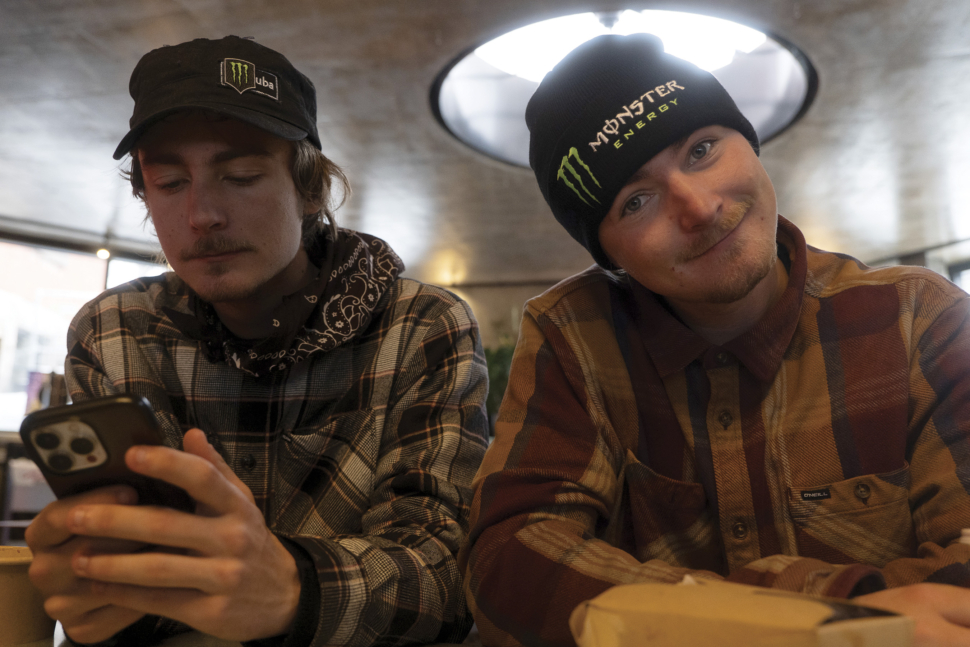
Both conceived at a supercross event. Action sports runs in your veins from before birth. What’s it like having a younger brother who is also pro to share all of these snowboarding moments and projects with each other?
The Busters films have been so, so fun. It’s been a dream come true being able to do exactly what we’ve always wanted to do. And yeah, it’s been fun figuring it out, ’cause it’s pretty early stages. Like, we’ve got big, big ideas and goals for ourselves in that avenue, but yeah, to be able to shred together and get gnarly on some spots together is fucking so sick.
I think we are good. [Laughs.] Anything else you want to do with your career, before we finish this up?
I want to go into the backcountry and streets, film, skate, surf, maybe get back on the dirt bike, but quit competing after this next Olympics, I think. Just give it my all and hang with my friends.
